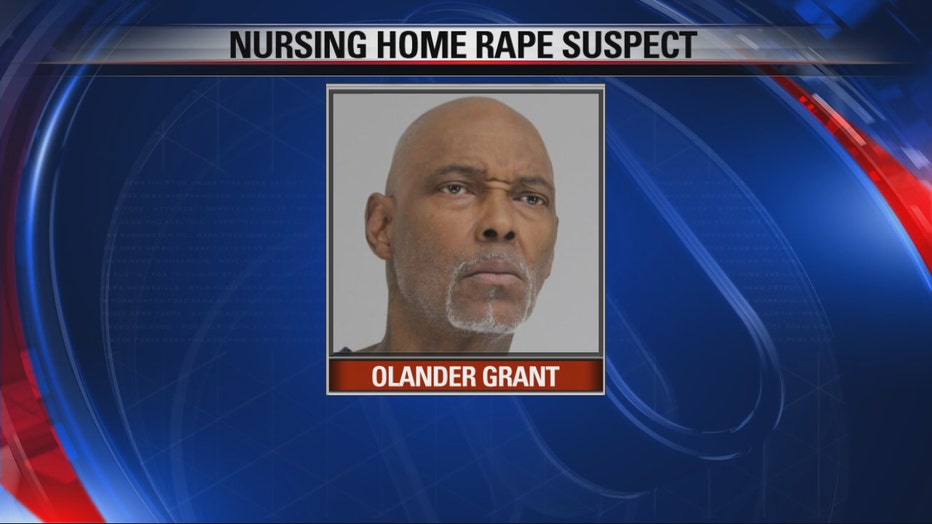DETROIT (WXYZ) — After a fall in her home, 78-year-old Bessie Owens
said she just needed some help getting a wheelchair ramp installed.
Instead, the long-time Detroit resident ended up being put under
guardianship in the probate courts – where she was declared legally
incapacitated.
When you’re put under guardianship and conservatorship, you can no longer make any legal, medical or financial decisions.
That’s why Owens says she wants to know why Adult Protective Services
workers petition the court to put her under guardianship and
conservatorship, instead of helping her get what she really needed.
Owens needs a walker to get around, but she’s still fiercely
independent. She struggles with osteoarthritis, but Bessie says she is
more than capable of handling her own medical and financial affairs.
“I
know how to tap into resources in my neighborhood and beyond,” Bessie
told 7 Investigator Heather Catallo. “And I think I should have some
input into my life daily.”
That’s why the long-time Detroiter is
furious that an Adult Protective Services worker petitioned the Wayne
County Probate Court last May to place Bessie under guardianship and
conservatorship.
“Did you have any notice that a guardianship case had been opened about you?” Catallo asked.
“No,” said Bessie.
“Nothing in writing?” asked Catallo.
“Nothing in writing,” Bessie responded.
This all started last year when Bessie says she fell two times and ended up in the hospital.
Bessie
says on her own, she arranged for in-home caregivers, but she still
needed a ramp to bypass her front steps with her walker.
“Without the ramp, I could not get outside to transact business and that kind of stuff,” said Bessie.
Someone
contacted Adult Protective Services for a welfare check, and then
Bessie says an APS investigator named Tresna Tupper came into her home
uninvited.
“That’s intrusion,” said Bessie.
Tupper then
filed petitions for guardianship and conservatorship with the Wayne
County Probate Court, saying Bessie is “medically frail” and “unable to
manage her affairs.”
Court records show Tupper even wrote under
penalty of perjury that she couldn’t find Bessie’s adult children to
tell them about the guardianship – even though the 7 Investigators
easily found Bessie’s daughter on Facebook.
Her daughter, a Wayne
County employee, confirms no one from APS or the courts ever contacted
her. Tupper also typed the wrong address for APS on the petitions, as
well as on the petition in another case reviewed by the 7 Investigators.
Legal experts say Owens' family would have had priority under the law to become a guardian, if one was needed.
“Your
guardian is making some very intimate decisions about everything about
your life,” said Nicole Shannon, Systemic Advocacy Attorney from the
Michigan Elder Justice Initiative.
Shannon also says, “Michigan
law requires that adult children be notified of a petition for
guardianship and presumptive heirs be notified of a petition for
conservatorship. That notice has to be in writing and served either in
person or through the mail."
If a person filing a petition is
unable to locate the adult children or presumptive heirs, they can ask
the court for special permission to notify them through publication or
some other method. That is done by filing an affidavit under penalty of
perjury with the court showing that despite diligent efforts, they could
not determine the whereabouts of the person.
Diligent effort
typically includes asking known friends or family members, as well as
conducting an internet search. There should not be a final ruling until
all parties have received their notice.
Unfortunately, when family
members do find out about guardianship or conservatorship after the
fact, it can be too late. Significant decisions have already been made,
and there must often be a second series of court hearings to try to
unwind what has already happened.”
“I do not need no one to
oversee my finances, or a guardian. I’m mentally capable of transacting
my day-to-day business. I do not need that. I need a ramp to be able to
leave my home when I need to,” said Bessie.
Even after she learned
of the guardianship case, Bessie says she did not have transportation
for court so she could not attend the hearing last summer.
Tupper asked the court to appoint Whitehouse Guardian Services, which is owned by Stacey White-Smith.
Court
records show Tupper has asked the court to give at least nine
guardianship cases this year to Whitehouse Guardian Services.
Tupper also nominated a lawyer named Cynthia Williams to be Bessie’s conservator to take over her social security income.
Court records show Tupper and Williams are also listed together on at least eight conservatorship cases since 2018.
Williams and White-Smith deny they have any sort of relationship with APS investigator Tupper.
On her own, Bessie contacted a local non-profit who installed the ramp for her in August.
Guardian
Stacey White-Smith would not talk to us on camera, but she did admit
she’s only seen Bessie two times since she was appointed guardian in
June.
Bessie says when she tried to get ahold of White in September she couldn’t, and later found out White was out of the country.
The 7 Investigators started asking questions why Bessie Owens was put under guardianship in August.
Now,
both the guardian and the conservator have told they court that they
want out of the case, and say Bessie doesn’t need a guardian or
conservator.
“Have you met your conservator?” Catallo asked Bessie.
“No. Never,” said Bessie.
Even
as she seeks to terminate her involvement, court records show the
conservator wants to get paid $687.50 for five and half hours of work.
We
caught up with conservator Cynthia Williams after a court hearing for
another case where she and White-Smith are both in charge of a different
ward.
“Why are you trying to charge her $687 when she only has $6500?” asked Catallo.
“Because that is my fee for my services,” said Williams.
“What did you actually do though?” asked Catallo.
“It’s on my account did you see it,” said Williams.
“I
did see your account, but you never talked to her, you never went to
see her, you filed some paperwork, she doesn’t have that much money, she
says she doesn’t need a guardian or conservator -- so what did you do?"
asked Catallo.
“You saw my account correct,” said Williams.
“I did – I’m asking you what you did,” asked Catallo.
“I told you, my account shows you what I did,” said Williams, who refused to provide more details.
“I
want everybody to know, especially the population that I’m in, which is
seniors and people with disabilities, what can happen, if you don’t pay
attention to the system that’s supposed to protect us,” said Bessie.
Bessie
Owens, the guardian and the conservator will all be in court next week
when Bessie Owens hopes to have this guardianship terminated.
The 7 Investigators did try several times to talk to Tresna Tupper from APS, including visiting her a home and calling her.
A
spokesman says they can’t comment on the specifics of this case due to
privacy rules, but they are going to conduct additional training on
filing guardianship petitions and using community resources first.
Below we have listed a series of our questions to APS about their role in initiating guardianship cases.
The guardian says she tries to go above and beyond for her wards. Her additional statement is below.
Stacey White-Smith Statement
“I am one of many public
guardian's that genuinely care [sic] about the community that I live in
and would like to see more stories in regards to the challenges we face
serving the mentally and physically incapacitated individuals in Wayne
County. Every day is a challenge in making sure that my Wards
have all of their needs met. It is my job to assess every situation
individually and make the best decisions for the people I am appointed
to serve. As a guardian at times I go above and beyond my mandated
duties to make sure that my Wards feel that they are cared for. It is
not beneath me to assist with transportation to hair appointments,
grocery stores, doctor’s appointments, even bringing lunch and snacks to
my clients in nursing and group homes. I love my community and I love
the people in it and I have committed myself to making sure that I help
as many people as I can in Wayne County. My client list is very small,
one of the smallest agencies in Wayne County but that's only because I
want to make sure that I can give individualized attention to the people
I've been appointed to care for…
Everyday I work with
phenomenal Judges who have to make tough decisions in regards to
people's lives. I am proud to be a part of this system and I hope that I
can continue to provide quality Guardianship Services to my community.
At this point I would have to respectfully decline a second interview. I
thank you in advance for respecting my privacy and the privacy of my
family.”
Questions regarding Adult Protective Services to Bob
Wheaton, Public Information Officer, Michigan Department of Health and
Human Services:
How often do APS investigators file petitions for guardianships?
Guardianship
petitions are filed when allegations of abuse, neglect, and/or
exploitation is substantiated for adults determined to be vulnerable,
mentally or physically at risk of harm and/or unable to make an informed
decision. APS will exhaust all other alternative resources to alleviate
risk of harm to the client prior to filing a petition.
Policy is as follows:
Whenever
non-legal intervention fails to meet the goal of protection, the need
for voluntary or involuntary legal intervention may be utilized to
protect the client. The APS worker must evaluate the need for legal
intervention, and it should be initiated only when the following
conditions exist:
· Endangerment cannot be eliminated with the use of the social intervention process, and
·
The client requests or voluntarily accepts legal assistance because
physical or cognitive limitations result in the inability to manage
one’s own affairs or the client does not consent to legal action but is
endangered because he/she is unable to exercise independent judgment due
to cognitive or physical limitations.
What’s the protocol for filing a petition?
The
APS investigator determines if petition is needed and gathers
information to support or justify the need to present to the court.
What happens before a petition is filed?
The
APS investigator gathers pertinent information, attempts to alleviate
risk of harm by obtaining resources, working with client (if
cooperative/able), working with the client’s support base, i.e.
community affiliations, family, neighbors, and friends, and making
appropriate referrals/arrangements for other services. APS investigator
reviews the case with supervisor.
What’s the protocol for trying to reach family members?
It
is routine for APS investigators to attempt to find and contact family
members and include the family if appropriate (unless the related person
is the perpetrator) when completing a Plan of Care and filing
petitions. There are times in which it is appropriate to honor the
client’s request not to contact family. In an attempt to locate family,
APS investigators will ask the client, review former MDHHS cases,
conduct the Bridges system (which tracks public assistance cases)
clearance to search associated people, ask friends or neighbors of the
client if appropriate, review the Court-View court records system, and
publish in the Legal News.
How is the guardian determined?
The
guardian can be nominated by the judge or APS investigator. There are
times when APS will nominate a guardian and the judge appoints someone
else. Wayne County has two contracted guardianship agencies which we
will generally nominate, prior to 2018 we only had one. However, APS is
not restricted to utilizing contracted agencies due to the volume of
clients in need. Guardianship agencies are our community partners who we
establish working relationships with. Due to agencies’ established
networks with community resources, some specialize in serving
developmentally delayed clients, seniors who want to stay in their own
home or clients who need placements. In general APS investigators
establish working relationship with various guardians and learn who
provides the best client services and will best meet the needs of
clients.
Does your APS investigator (Ms. Tupper) have a relationship, financial or otherwise, with Whitehouse Guardian Service?
The department is unaware of any relationship other than a professional relationship.
Why
did the APS investigator (Ms. Tupper) say in the petition that she
couldn’t reach the client’s family to see if there was a suitable
relative provider when the client says all she had to do was ask the
client for contact information? Tupper wrote “unknown” for the address
of all three adult children who live in Southeast Michigan.
We
can’t discuss specifics due to confidentiality, however, as stated
above, APS attempts to find a suitable family guardian if possible and
if the client wants to have a relative guardian. In some cases, the
client does not want to have a relative be his/her guardian or the
probate court may appoint an guardian that the court feels is best
suited for this role, if the court finds there is clear and convincing
evidence that the person is legally incapacitated and that the
appointment is necessary to provide continuing care and supervision of
the person.
How does this APS investigator (Ms. Tupper) find guardians?
Each
county has contracted guardians, and can also utilize other guardians
that the workers are familiar with. There are checks and balances in the
system. Clients have a guardian ad litem who is appointed to watch out
for the client’s interest, and the probate judge makes the final
decision. So APS investigators may make a recommendation of a guardian
who is willing to serve as guardian and the probate court determines who
the guardian will be.
Full Article & Source:
Detroit grandma just wanted a wheelchair ramp, but ended up being put under guardianship


























